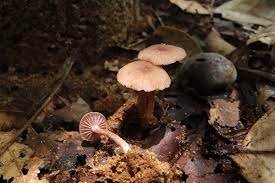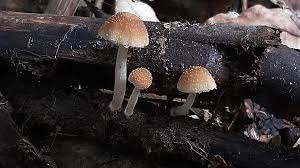New Mushroom Species Discovered in Western Ghats
Mushrooms are a vital part of our ecosystem, playing significant roles in nutrient cycling and providing valuable insights into biodiversity. In a recent discovery, scientists have unearthed a new species of mushroom in the Western Ghats, a region renowned for its rich biodiversity. This revelation carries immense importance, particularly for students preparing for various government exams, such as those aspiring to become teachers, police officers, bankers, railway personnel, defense personnel, and civil service officers like the IAS.

Why This News is Important
- Biodiversity Enrichment: The Western Ghats, a UNESCO World Heritage site, is known for its unparalleled biodiversity. Discovering a new mushroom species highlights the need to protect this region and the urgent requirement for its conservation.
- Scientific Research: This news underlines the importance of scientific research in uncovering previously unknown species. It showcases the immense potential for students studying biology and environmental sciences.
- Ecological Significance: Mushrooms play a crucial role in the decomposition of organic matter and nutrient cycling. Understanding new mushroom species contributes to our comprehension of ecosystem dynamics.
Historical Context
The Western Ghats, often referred to as the “Sahyadri Range,” has a long history of biodiversity exploration. It’s been a subject of fascination for botanists, ecologists, and wildlife enthusiasts for centuries. The region is home to several endemic species, and its uniqueness lies in its ability to support a wide range of flora and fauna. The discovery of a new mushroom species is a testament to the continuous exploration and documentation of the Western Ghats’ incredible biodiversity.
Key Takeaways from “New Mushroom Species Discovered in Western Ghats”
| Serial Number | Key Takeaway |
|---|---|
| 1 | A new mushroom species was found in the Western Ghats, emphasizing the region’s rich biodiversity. |
| 2 | This discovery highlights the need for conservation efforts and scientific research in the Western Ghats. |
| 3 | Mushrooms play a vital role in ecosystem functioning, making this discovery ecologically significant. |
| 4 | Aspiring biologists and environmental enthusiasts can consider mycology and biodiversity conservation as career options. |
| 5 | News like this underscores the importance of environmental awareness, a relevant topic for various competitive exams. |
Important FAQs for Students from this News
Q: Why is the Western Ghats considered a biodiversity hotspot?
A: The Western Ghats is a biodiversity hotspot due to its unique and rich variety of plant and animal species, including numerous endemic ones.
Q: How does the discovery of a new mushroom species contribute to ecology?
A: The discovery of a new mushroom species contributes to our understanding of ecosystem dynamics, particularly in nutrient cycling and decomposition processes.
Q: Are there any career prospects related to mycology and biodiversity conservation in India?
A: Yes, there are career prospects in India for those interested in mycology and biodiversity conservation, particularly in research and conservation organizations.
Q: Why is environmental awareness important in competitive exams?
A: Environmental awareness is crucial in competitive exams because it reflects a broader understanding of environmental issues, which are often part of the syllabus.
Q: What is the role of UNESCO in preserving the Western Ghats?
A: UNESCO recognizes the Western Ghats as a World Heritage site, highlighting the importance of conserving its unique biodiversity.
Some Important Current Affairs Links

















